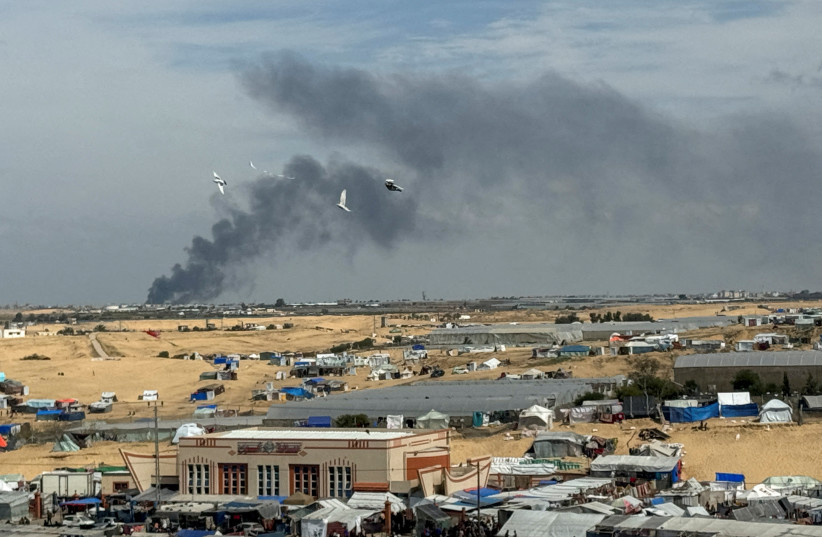Mossad Director David Barnea left for Doha on Sunday to discuss Hamas's counter-proposal for the hostage deal with the prime Minister of Qatar, Muhammad Al Thani, and Egyptian officials. Brig.-Gen. (res.) Prof. Jacob Nagel, former acting National Security Council chief, referred to the negotiations in a conversation with Arel Segal on 103FM.
"The IDF is about to enter Rafah. Before it attacks Rafah, it needs to move the 1.2 million refugees who are there either [elsewhere in Gaza] or to some floating islands. The Egyptians don't want them to come to the fence with Egypt, the Americans don't want us to attack first, so that there won't be a humanitarian disaster. I think it should have happened a week or two ago," he said. "People got confused when the Prime Minister's Office says 'approved plans,' it does not mean 'gave the army an order to attack.' Today, the army and the political echelon, in my opinion, are saying the same thing, they are waiting, they are currently giving a chance to the last attempt to reach a hostage deal."
Hamas doesn't feel pressure
According to Nagel, "There won't be a deal because Hamas doesn't currently feel enough pressure, especially [Hamas chief Yahya] Sinwar, and that's why it makes ridiculous demands. I still think it's right to send the delegation to Qatar... I'm in favor of a deal that has everything Hamas wants except for a ceasefire. To get 40-50 hostages, I have no problem with a month-long cease-fire and even the release here and there of heavy prisoners. The one thing that we can under no circumstances agree to is a ceasefire."
Nagel continued, stating "What's happening right now de facto is that Hamas is getting a kind of ceasefire, not exactly, but kind of. They're still fighting in the north, in the center, and here and there, we're attacking Rafah. We need to start with this quickly, very quickly. This situation also affects the North (the border with Lebanon)."
According to Nagel, "There are 24 battalions of Hamas, we destroyed 18 to 20 of them. We need to destroy all 24, after that we need to continue working underground and above the ground, for years, just like it was in Operation Defensive Shield in Jenin. Until today, [22] years later, there are still nests of terrorism in Jenin, so whoever thinks that there will be no terrorists after we destroy Hamas in Rafah is wrong. The fight against terrorism will take place for [years to come], but if the IDF controls security in Gaza, it will be able to enter and exit as it does in Judea and Samaria, which will be much better."

Finally, Nagel added, "Ramadan must not be a parameter for when they attack in Rafah and when they don't. The only parameters are to evacuate the refugees so that we are not accused of killing supposedly innocent civilians, some of them are not, and so that we receive the support or non-resistance of the Egyptians, the Americans, and the world."
